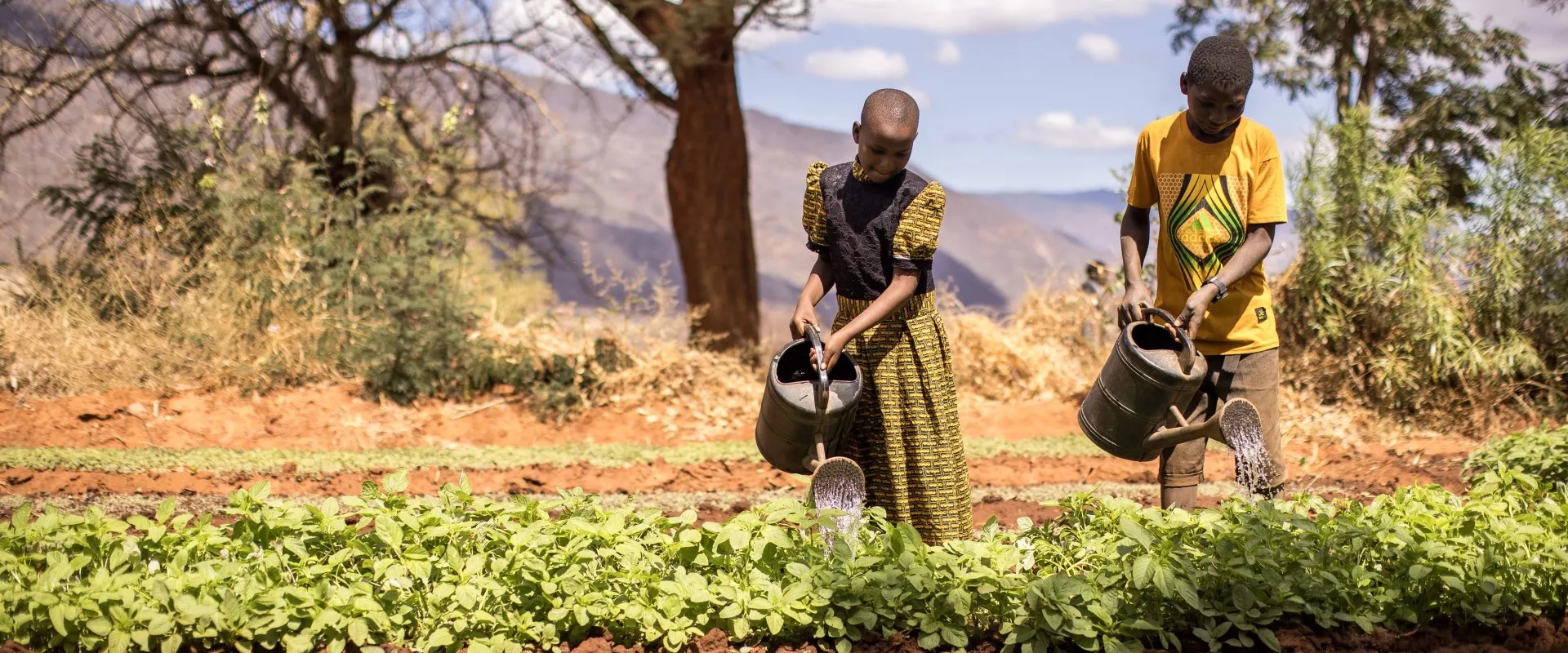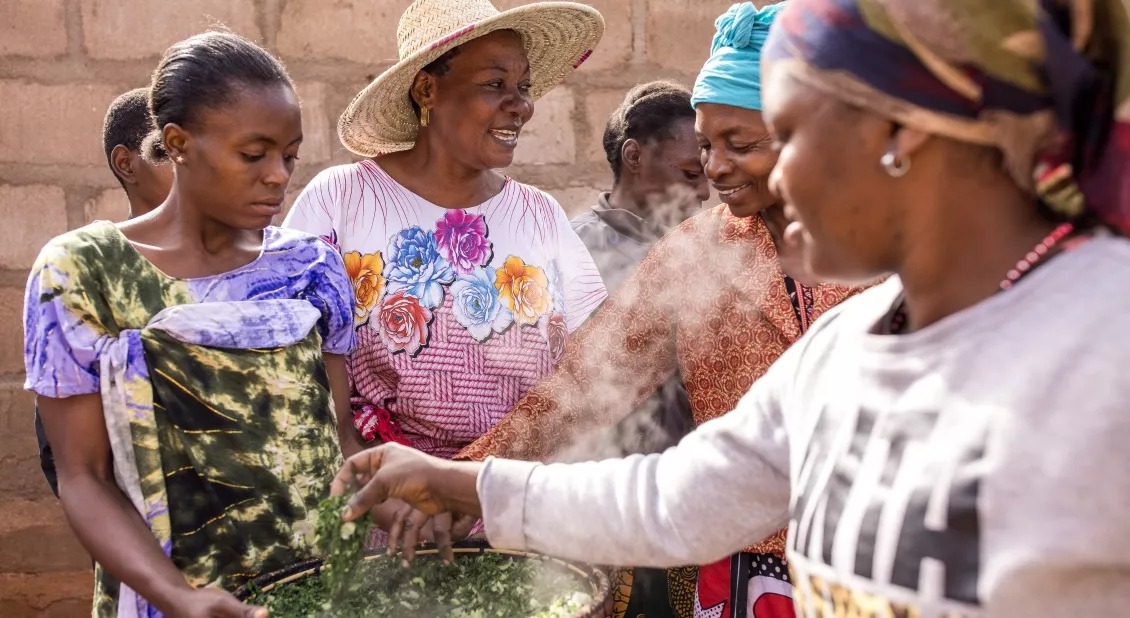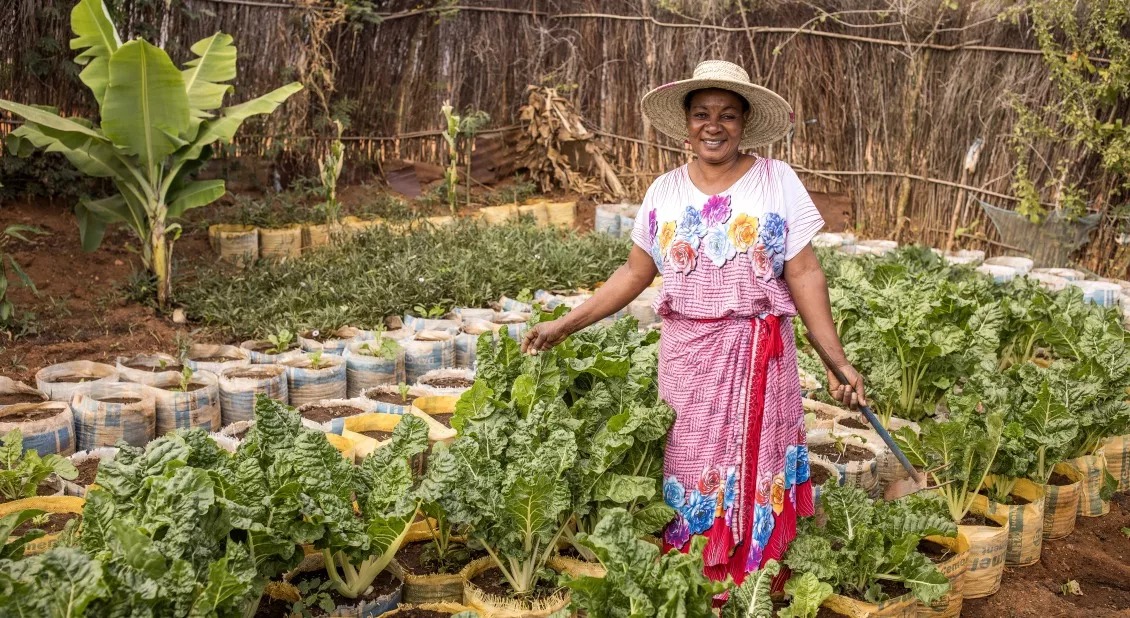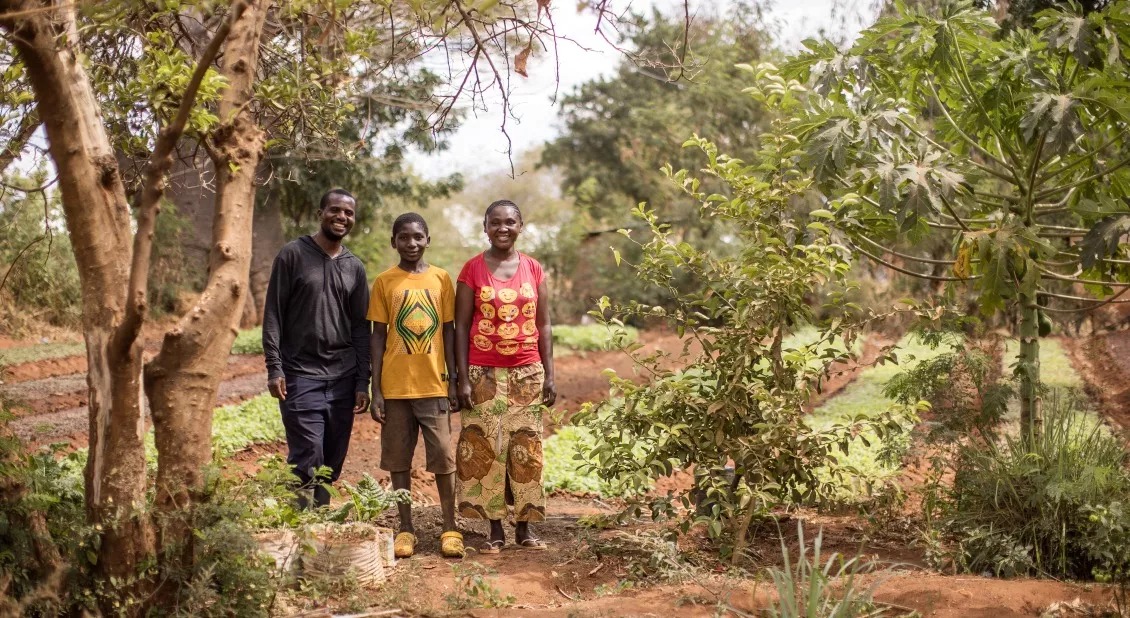
GIVE THIS RAMADAN

Two years ago, before Salama Madinda started her kitchen garden, she could only afford two meals a day for her family of four in their village of Ving’awe, Tanzania.
Salama, 53, and her family would eat breakfast at 11 a.m. and wait to eat their dinner at 8 p.m.
This all changed when Salama’s friend made a call.
“A friend called and invited me to learn about different activities done by the community health worker in the next village. I learned how to prepare special foods for children under five years of age. I also learned how to use the small area I have at home to plant different types of vegetables,” says Salama.
After the training, Salama utilized her new farming skills and began mixing soil and manure to ready her land for planting. Her garden bloomed, and it became the talk of the street.
Now, the family eats three full meals a day.
Action Against Hunger provided Salama with a variety of vegetable seeds, a water tank, watering cans, and a dryer for preserving vegetables to be used during dry seasons.
“The support from Action Against Hunger helped me get more vegetables. I started selling them in the next few villages. People buy them, which helps us get money for breakfast, and the rest of the money generated from markets helps my family buy other necessities” —Salama
Salama believes in leaving no one behind. She wanted to share what she’d learned and started an initiative to train other women in her community. They formed a group called “Tupendane” (“let’s love each other” in Swahili) — 32 women who support one another and work together to prepare their gardens and plant vegetables.
“Now, women have something to do as an occupation. Instead of just staying at home…it is better to do something productive that suits us women who are not qualified for corporate jobs,” she says.
All of this work has helped the community build unity, which gives Salama joy. Her kitchen garden has improved her good relationship with her neighbors, as they do different activities together and have a community savings association where they can save and borrow money for low interest. Many use their loans to buy farming equipment.

The Tupendane group is learning how to prepare nutritious food for children – or anyone in need of a healthy diet. They cook dishes using sweet potatoes, carrots, milk, and sometimes, when available, beef, fish, or chicken.
The women also learned how to dry out vegetables to preserve them. Instead of boiling the vegetables for a long time and leaving them to dry in the sun – the traditional practice that can drain out the nutrients from vegetables – women learn to soak the crops in hot water for five minutes and fold them in a clean cloth instead.
When the harvest is over and the dry season comes, they will have enough food stored up to ensure that their families have enough to eat.
According to Salama, the biggest challenge they have is how to protect their crops from being invested by pests and harmful pesticides. The women learned how to prepare a home-spun pest repellent using garlic, onions, a piece of soap, and pepper mixed with water, which they pour into plants to protect them. After using this mixture, they can safely harvest just 12 hours later while chemical pesticides require a seven-day wait.

Nearby Salama’s village, Zena Lukali and her husband John Mhangamkali work to improve their vegetable garden with support from Action Against Hunger. Our team provided them with seeds, a water tank, watering cans, a pump, and a solar dryer, as well as advice on how to best prepare the garden.
“Due to the skills gained from Action Against Hunger, it made it easy for me to make a garden in small rows of one inch, and it was easy to water the vegetables. The harvest was good, and we sold the remaining vegetables and generated money out of it,” says Zena.
John and Zena’s neighbor, Majuto Mhangamkali, used to grow maize, sunflowers, and peanuts. But, after seeing the potential in vegetables and his neighbors’ success, he started his own kitchen garden. Gardening is traditionally considered “women’s work” but Majuto says it’s time for men to join in and contribute, too.
Now, John and Zena happily work on their garden, supporting each other to grow crops, sell them at the market, earn income, and bring food to their table. With Action Against Hunger’s support, the family has been able to afford medical bills, school supplies and fees, and they have changed their diet for the better.
Working together as parents helps their children learn the importance of collaboration, according to John, which prepares them to support their spouses and families in the future.

Join our community of supporters passionate about ending world hunger.